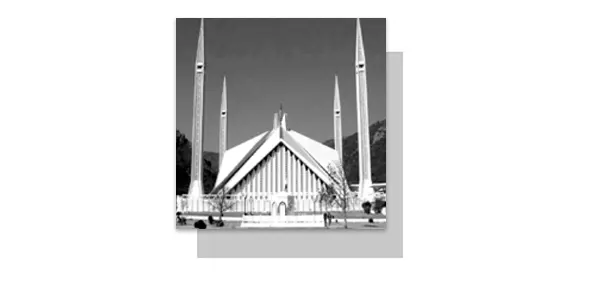WOMEN, like men, were designed to be approachable and eager to live their lives without the intervention of others. Islam, on the other hand, acknowledges the individual right to liberty. As long as it does not conflict with the collective human society’s vital interests, Islam respects women’s emancipation and incorporates it into its legislation. As a result, where liberty is at odds with women’s true interests, Islam chooses limited and unconditional freedom. We’ll go through a few of the advantages that women have: As previously said, Islam views women as one of society’s two pillars and assigns them different obligations. Working is considered a necessity and a good form of devotion in Islam, and its adherents are warned to avoid sloth, vanity and retirement.
There are numerous Ahadith on this subject, some of which have been listed here.”There are seventy aspects to worship; the greatest of them is an endeavour for a regular income,” said Allah’s Messenger (s). According to Islam, work is not a right, but an obligation and men and women are no different in this regard. Women are delicate, sensitive and lovely creatures. As a result, they should make an effort to choose professions that will enhance their husbands’ physical and mental beauty. Article 7 of the Convention guarantees the right to vote in all referenda and greater involvement in the formulation of government policy and the ability to be elected to public office (Shah, 2006). Similarly, Islam recognizes the public role of women.
A, 2006: 48, according to the Qur’an (sand), “Allah’s generosity to the entire society is the establishment of authority in this world. He (governs) their business by bargaining with one another and consulting with them (women) on their problems.” As a result, the preceding verses illustrate that men and women have equal rights in government and decision-making. According to Islamic feminists, a thorough review of the Qur’an’s rules demonstrates that the political system is built on the Qur’an’s norms. There are no restrictions on who can take part. They can vote and run for public office, including the presidency. Even though the Qur’an includes no reference to such phrases, they believe that the majority of Muslim scholars oppose women’s participation in politics and leadership roles. Politics is neither a masculine nor a female-dominated profession. It is a relic of ancient Arab patriarchal culture, they believe. Only men were given privileges to function in the public sphere, which is still felt today and disproportionately affects women.
Women’s disadvantages are not mentioned in the Qur’an, and there is no mandate that politics or leadership are solely for men. The Qur’an, on the other hand, is a fantastic picture of female leaders in patriarchal Arab culture; Bilqis, Queen of Sheba, stands as an exemplary figure. The Qur’an depicts her traits of knowledge and self-determination, as well as is political and religious practices, as a leader and ruler of the state. The Quran’s basic norm of leadership relates to the notion of functional specialization: to wield power, the correct individual must execute a function, which means that the Quran does not preclude women from exercising control, either over women or over both women and men (Wadud, 1999; Muhibbu-din, 2019).
Modernists criticize Islamists’ use of male-centred and misogynistic stories. They think Islamic history shows that women were freed from slavery and violence during the Prophet’s (PBUH) time, demanding their rights as equal citizens and participating in the Arab building process in the Prophet’s politics (PBUH). Under his guidance, all women in Medina were granted full citizenship as Sahabiyat (honourable and venerable Muslim women of the time of the Prophet who devoted themselves to spreading Islam and fulfilling various socio-economic tasks, political and educational). They have the right to attend Ummah (Muslim community) meetings, to speak freely with their leader, the Prophet (PBUH), to fight for their rights and to join the military, including the Prophet’s wife (PBUH). History and Culture of Islam: Mernissi (1991) concluded that any thought that Muslim women wished to receive honourable people and have citizen status necessarily excludes them from the Muslim community and makes them fervent protectors of Western civilization (Mernissi, 1991; Muhibbu-din, 2019).
As a result, if we objectively evaluate the history of Muslim societies, we can observe that Muslim women have the right to participate in modern-day activities fully. We’ll also illustrate how their goal for social equality, human rights and involvement in socio-political and democratic processes is rooted in Muslim tradition rather than Western ideas. The main issues that hinder women’s active participation in socio-political activities include religious rigidity, financial constraints, economic dependence, socio-cultural barriers, restricted mobility, illiteracy, family responsibilities and relatively weak decision-making capacity. As a result, the gender gap in Pakistan has widened due to radical Islamic extremism.
The sector of religious orthodoxy has radically changed and misunderstood the Islamic creed of equality. In addition, socio-cultural patterns, societal patriarchy and agriculture-based economy adversely affect women’s mobility and socialization. These situations exclude women from politics and reduce their participation in bureaucracy and administration. Modern Pakistan has taken steps to address women’s grievances; increasing reserved seats for women, enacting anti-harassment laws and creating a “women’s ombudsman” are just a few examples, but greater social awareness is still needed to elevate the socio-political status of women’s grievances. In this sense, all stakeholders must play their part to ensure that they have political space, that their contributions are recognized and that their rights are protected. Women in positions of authority should be role models for other women, inspiring them to fight for their fundamental human rights.
—The writer is a PhD in Islamic thought and culture from NUML Islamabad and the author of five books and forty research publications.
Email: drumarabbasi101@gmail.com
views expressed are writer’s own.










